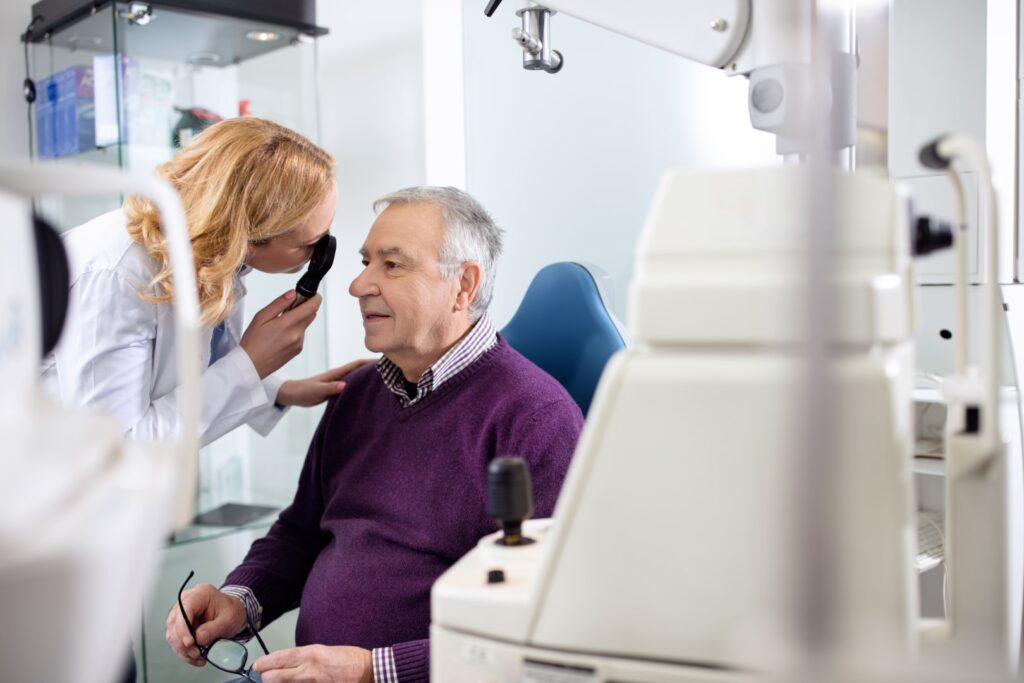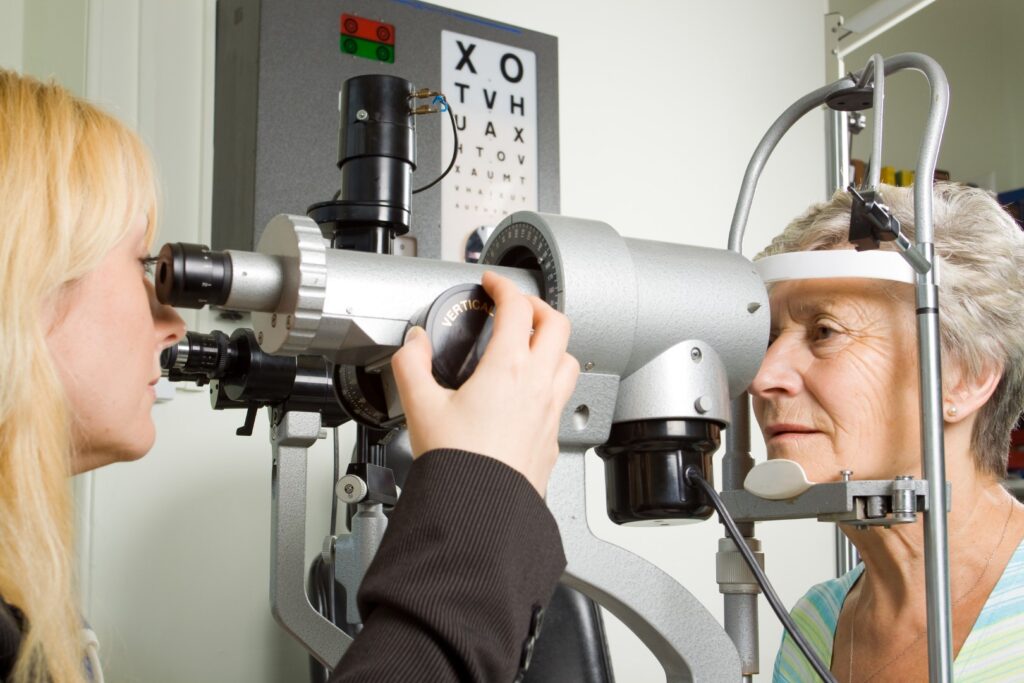Age-related Macular Degeneration (or AMD) is an eye disease that causes decreased or loss of central vision. Someone who suffers from macular degeneration can’t see fine details, regardless of whether they are looking at something up close or from far away. However, someone with macular degeneration will still have normal peripheral vision, so if they were to, for example, look at a clock, they might see the numbers of the clock but are unable to see the clock’s hands.
AMD is very common and is the leading cause of vision loss in people over the age of 60. We’ve put together this blog post to highlight everything you need to know about macular degeneration.
Macular Degeneration: Who Is at Risk?
While age-related macular degeneration is common amongst people over the age of 60, there are some factors that might make you more likely to develop AMD. These include:
- A family history of AMD
- Eating a diet that is high in saturated fat (found in foods like butter, cheese, and meat)
- Are overweight
- Smoke cigarettes
- Have hypertension (high blood pressure).
Having heart disease can also add to your risk factor of developing AMD. It is important to visit an optometrist regularly to have your eyes checked, to keep them as healthy as possible. Eating eye-healthy foods such as dark, leafy greens, yellow fruits and vegetables, and fish, as well as maintaining a balanced, nutrient-rich diet can be beneficial for those who have macular degeneration.
Macular Degeneration Diagnosis
Many people don’t realize that they have macular degeneration until their vision becomes very blurry, which is why it is important to see an optometrist regularly. During a routine eye exam, an optometrist may ask you to look at an Amsler grid, which can help you notice any blurry or distorted spots in your field of vision. Optometrists can also look inside your eye using a special lens and will be able to see if there are any noticeable changes in your retina and macula. iSight Optometry offers Optical Coherence Tomography (OCT), which is a non-invasive image testing that uses light waves to take cross-section pictures of your retina. With OCT, our doctors are able to map and measure the thickness of each of the retina’s distinctive layers. This measure can help with the early detection, diagnosis, and treatment of AMD.
Available Treatments
It is important to note that there are two different types of age-related macular degeneration – dry AMD and wet AMD. Dry AMD, which is the most common form, occurs when parts of the macula get thinner with age which results in tiny clumps of protein, called drusen, that grow. This results in the loss of central vision. Unfortunately, there is no way to treat dry AMD, but certain people with lots of drusen may benefit from a certain combination of nutritional supplements that could help to slow their dry AMD.
Wet AMD is less common but much more serious. This form of macular degeneration occurs when new, abnormal blood vessels grow under the retina. These vessels can leak blood and other fluids which can result in scarring of the macula. There are medications available, called anti-VEGF drugs, which can be delivered to your eye through a slender needle. This drug can help reduce the number of abnormal blood vessels in the eye and can help slow any leaking from those vessels.
The good news is that, if you have age-related macular degeneration, it is possible to learn how to make the most of your vision. There are lots of special low vision tools available that can help you keep doing the things you love. These tools include different kinds of magnifying glasses, electronic items, handheld computers, and more. You can also learn to use your side vision.




